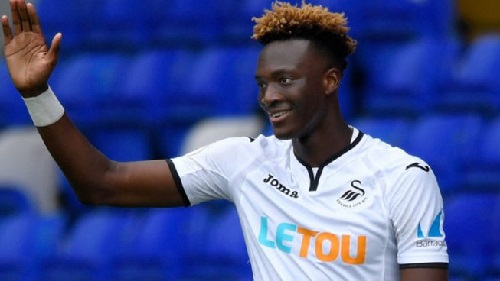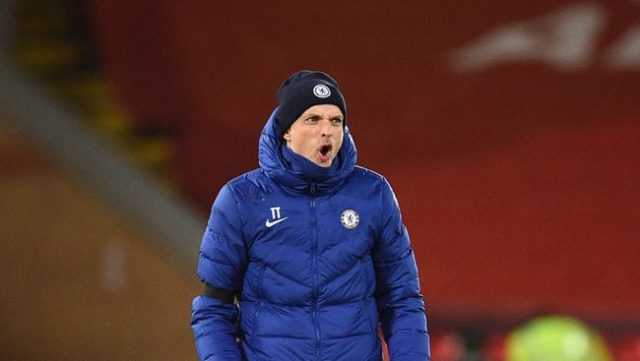 Tammy Abraham snub is a valuable lessonThe drama around Tammy Abraham over the last fortnight or so has been impossible to miss. The Swansea man has been called up to the England squad on the back of some fine performances in the English Premier League, and that announcement in itself ought to have rested the narrative around Nigeria’s interest in the player.
Tammy Abraham snub is a valuable lessonThe drama around Tammy Abraham over the last fortnight or so has been impossible to miss. The Swansea man has been called up to the England squad on the back of some fine performances in the English Premier League, and that announcement in itself ought to have rested the narrative around Nigeria’s interest in the player.
Except that, to expect that is to misread the Nigerian personality. For all its foibles, its citizens are a proud people, and no one likes to be turned down. Suffice to say that, if Abraham goes on to make a successful international career with the Three Lions, he will be doing it in spite of a generous chunk of negative energy stemming from the country of his ancestry.
Some of that though is to do with the fortunes of those who have chosen to spurn Nigeria over the years. There is even a direct parallel with Gabriel Agbonlahor, whose introduction in the Premier League back in 2007 was more eye-catching than Abraham’s now. Having tied him down, England never had much use for him afterward, and his career promptly diffused into thin air.
Patrick Owomoyela and Sidney Sam with Germany are two other pertinent examples; the usual approach is to immediately cap them once Nigeria begins to sniff around: an old trick, but a very fair one, making them forever inaccessible.
This has fed into some of the gloating and sour grapes that is in play among Nigerians regarding the youngster, and while it is entirely possible that he flunks out like all the others, this is a highly talented footballer with a whole lot of development ahead of him. We cannot begrudge him a chance to pursue what is evidently a dream of his.
He seems genuinely excited at the prospect of representing England, and has been relentless not only in posting pictures and tweets, but in stating that in spite of Nigeria’s best intentions (we were willing to roll out the red carpet, apparently; what that means in concrete terms is not hard to imagine), he never really considered us an option. Obviously, this is a slap on the cheek, but only in the sense that we exposed ourselves to it. The unvarnished truth is that Abraham does not need Nigeria, and Nigeria does not need Abraham.
A fascinating consideration: had he consented to play for Nigeria, would we get the same level of enthusiasm as he is now displaying? That is doubtful. It seems that there was a lot of fanfare for a footballer who was not overly interested to begin with, and this makes a mockery of those who genuinely have an interest in representing the Super Eagles.
To see the President of the NFF, Amaju Pinnick, bend over backward in this fashion, time and again over foreign-born players, can hardly be encouraging for locally-based players, for example. While the national pool should be open to all Nigerians born everywhere, it would be best to single out those who indicate a definite interest, a desire to be a part of the project. It does not mean that every foreign-born Nigerian footballer must play for Nigeria.
Increasingly, it is looking like that is all it takes. The manner in which it is being pursued also leaves a lot to be desired; whatever the motivations, going so hard on Abraham off the back of a single meeting and a photo op was heavy-handed. Arguably, this brash approach has only reaped reward in the case of Ola Aina, and that was helped by the fact the player’s father himself was eager that the then-Chelsea youngster represent Nigeria.
In the cases of Sone Aluko and Leon Balogun, to name two, we have seen how a pre-existing willingness can and does lead to greater commitment to the cause. To them, it was not so much about convincing them to play for Nigeria, as it was presenting them an opportunity to do what they always wanted to.
That really is the biggest lesson of this entire episode. If a player needs to be convinced, then he is not really doing what he wants. Rather than chase shadows, we owe it to ourselves to preserve our pride, and reward those who genuinely desire a chance to pull on our national colours.



